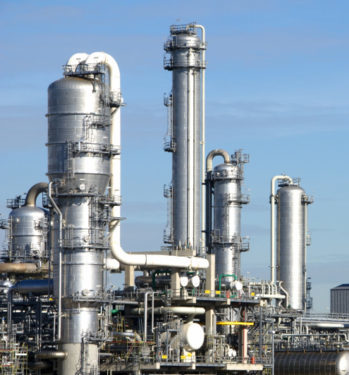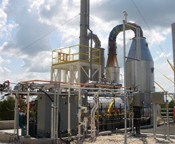Engineered for Safety and Reliability.
Anguil’s extensive experience makes us the perfect partner to meet your concerns.
 Applications
Applications
- Tail Gas Control & Destruction
- Cooling Tower Wastewater Treatment
- Separation and Treatment of Water from Feedstocks
- Sour Water and Blowdown Treatment
- Batch Reactor Vent Emissions
Challenges Solved
Is this you?
- Your pollutant laden streams are inert, with little or no oxygen, complicating the treatment options
- Low flow, high concentration streams present safety concerns for your Environmental, Health and Safety (EHS) team
- Halogenated and chlorinated streams from your processes have corroded existing pollution control systems

